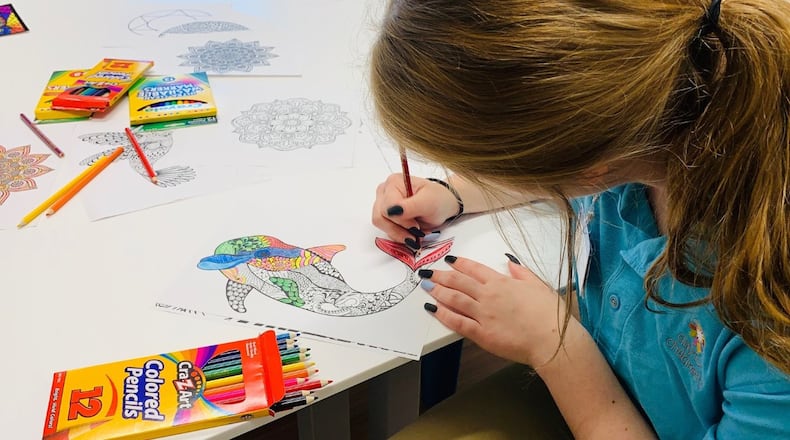RELATED: Half of psychiatrists can retire right now, leaving critical shortage
Dayton Children’s Mental Health Resource Connection is a referral line where trained staff help parents figure out what type of care their child needs.
They don’t just give out a list of providers in your zip code, Ramey said, but actually spend time on the phone to learn more about the child and their family situation.
“The vast majority of our referrals can be very competently cared for by clinicians at the Master’s (degree) level,” Ramey said, referring to counselors and social workers. “Those folks are very skilled at dealing with a myriad of problems, having to do with discipline issues, family dynamics and parenting.”
RELATED: Why youth mental health is one of the Miami Valley's biggest issues
The next level up is the doctoral level, which is psychologists like Ramey, who has a Ph.D. They are skilled at treating patients with anxiety, depression, severe eating problems and severe conduct problems.
“These folks have more training in the diagnosis and treatment of children with mental disorders,” he said.
Psychiatrists have the highest level of training — a medical degree — and can prescribe medication.
“Their expertise is in the medical management of psychiatric problems,” Ramey said.
A psychiatrist is needed in an acute, serious situation where there is not time to do intense therapy, he said, such as a suicidal individual.
“You need to kind of jump start them on something that will help them be amenable to therapy,” Ramey said.
RELATED: Local teen suicide survivor: 'Things really do get better'
Psychiatrists also treat those with psychosis — which involves a break with reality, or experiencing delusions or hallucinations.
“That’s an area where medication is absolutely essential,” Ramey said. “There’s really not a talking therapy for youngsters with severe disorders like that.”
Most of the time children who are on medication are also being seen by a therapist or psychologist, he said.
“Because child psychiatrists would be the first to tell you that medication is a means to an end and not a goal in itself,” he said. “It’s a way to help kids get better, with the goal being eventually for them to not be on medication forever.”
Nurse practitioners also can prescribe medication and help fill in the gaps where there is a shortage of psychiatrists. Multiple nurse practitioners can work under one supervising psychiatrist.
“There will never be enough trained child psychiatrists to meet the need,” Ramey said.
He suggested that families utilize the Mental Health Resource Connection referral line to get matched with the best type of professional for their particular situation. Parents often call asking for a psychiatrist, but by the end of the call, they’ve discovered their child actually needs to see a counselor.
RELATED: How Dayton region can stop record increase in teen suicides
“We don’t want families and children turning to medication as a way to solve an underlying mental health issue,” he said. “Medication is not going to solve an abuse situation … We’re not going to put a 3-year-old on medication because they are having temper tantrums.”
Contact the Dayton Children’s Mental Health Resource Connection at 937-641-4780 from 8:30 a.m. to 5 p.m. Monday through Friday.
About the Author
